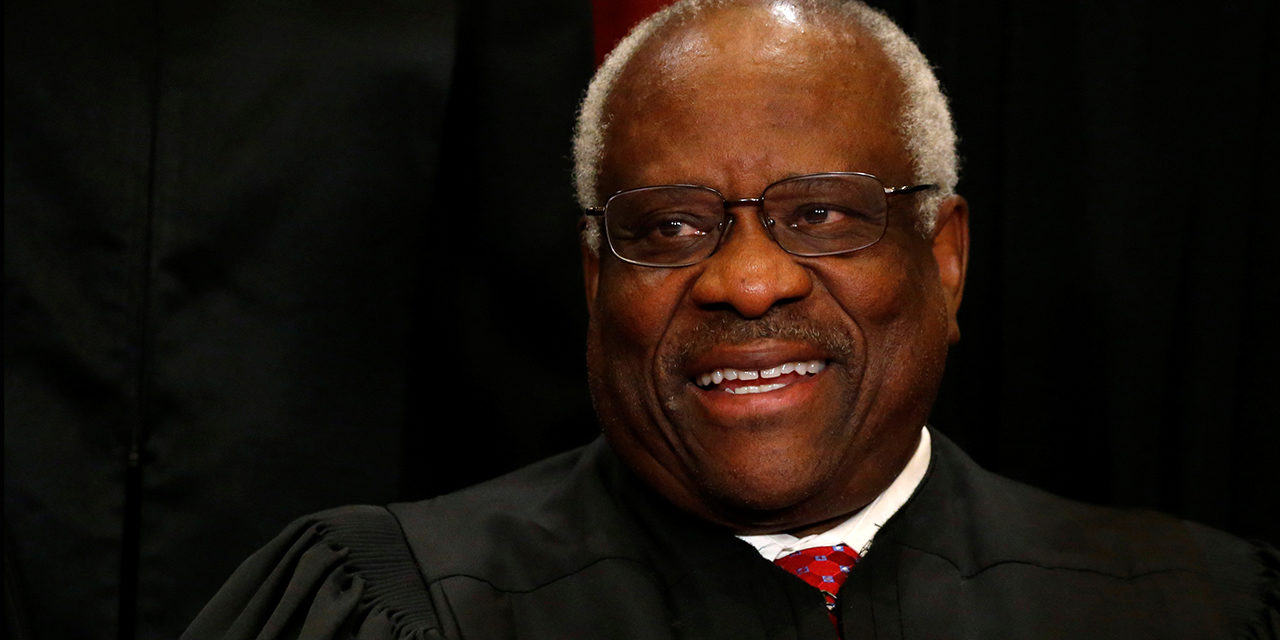Parents, do you have that brilliant child who is reticent to speak during public gatherings but shines when they find themselves in one-on-one conversations or in small groups? Take heart, because circumstances may provide a way, as they have in the case of U.S. Supreme Court Justice Thomas, to use their God-given talents and training to give them the platform they need to make the world a better place.
Supreme Court reporter Adam Liptak of The New York Times recently wrote a revealing article on Justice Clarence Thomas, who once went ten years without asking a single question during oral arguments at the high court. Yet, as Liptak notes, Thomas has participated in every single oral argument since COVID-19 restrictions beginning in April 2020 forced the court to re-tool its procedures in order to hold hearings via teleconference calls.
Liptak called Thomas’ recent emergence during such arguments “gregarious engagement.”
During normal oral arguments, which typically last an hour with each side’s attorney granted a half hour to make their case, the justices dominate the time, peppering the advocate with questions, sometimes interrupting the answer as well as other justices’ questions in order to engage with the attorney. “We look like the Family Feud,” Thomas once told a bar association group.
Over the last year of oral arguments, however, the process has become much more orderly. Chief Justice Roberts begins the questioning, and after a few minutes of uninterrupted Q and A with the legal advocate for one of the parties, calls on Justice Thomas, the first in line of the associate justices by seniority on the bench, to do the same.
Thomas has used the new format to ask pointed questions and is unfailingly polite in allowing the attorneys to answer them before asking another.
Although bold in his written opinions – Thomas has said that Roe v. Wade was “without a shred of support” in the U.S. Constitution, for example – he had been mostly silent during oral arguments prior to the 2020 change in the court’s procedure. He’s explained it several ways over the years. As The Times notes, he has said that oral arguments can be unruly and that the attorneys appearing before the court ought to be given a proper chance to make their case. In his memoir, My Grandfather’s Son, Thomas tells of being quiet during law school, sometimes intimidated by his fellow students. He has also mentioned that at times during his younger years, he was embarrassed by his rural Georgia accent.
The real Clarence Thomas is far different than his public persona up to last year would have suggested.
“He can be one of the most loquacious people you’ve ever met. He is extremely chatty,” Helgi C. Walker, an attorney and former law clerk for Thomas, told The Times.
And quick-witted. In one oral argument last year, an attorney inadvertently called Thomas “Mr. Chief Justice,” a title that, of course, belongs to Chief Justice John Roberts. “Thank you for the promotion,” Thomas responded jokingly.
Although I have never met the justice, friends of mine who have been blessed to meet him and talk with him confirm the reports from his former clerks of the justice’s warmth, humor and accessibility.
Thomas and his wife Ginni are famous for traveling the country in their RV on summer vacations, where they can be mobbed by admirers when they are recognized.
When the court returns to in-person oral arguments at the end of the current COVID threat, it may be that the ever-polite Justice Thomas will return to his quiet ways. That would be a loss for all of us. The country would benefit from witnessing the justice’s wisdom on display more often, and learn civility and common decency from the example that he sets in court.
Photo from Jonathan Ernst/REUTERS






